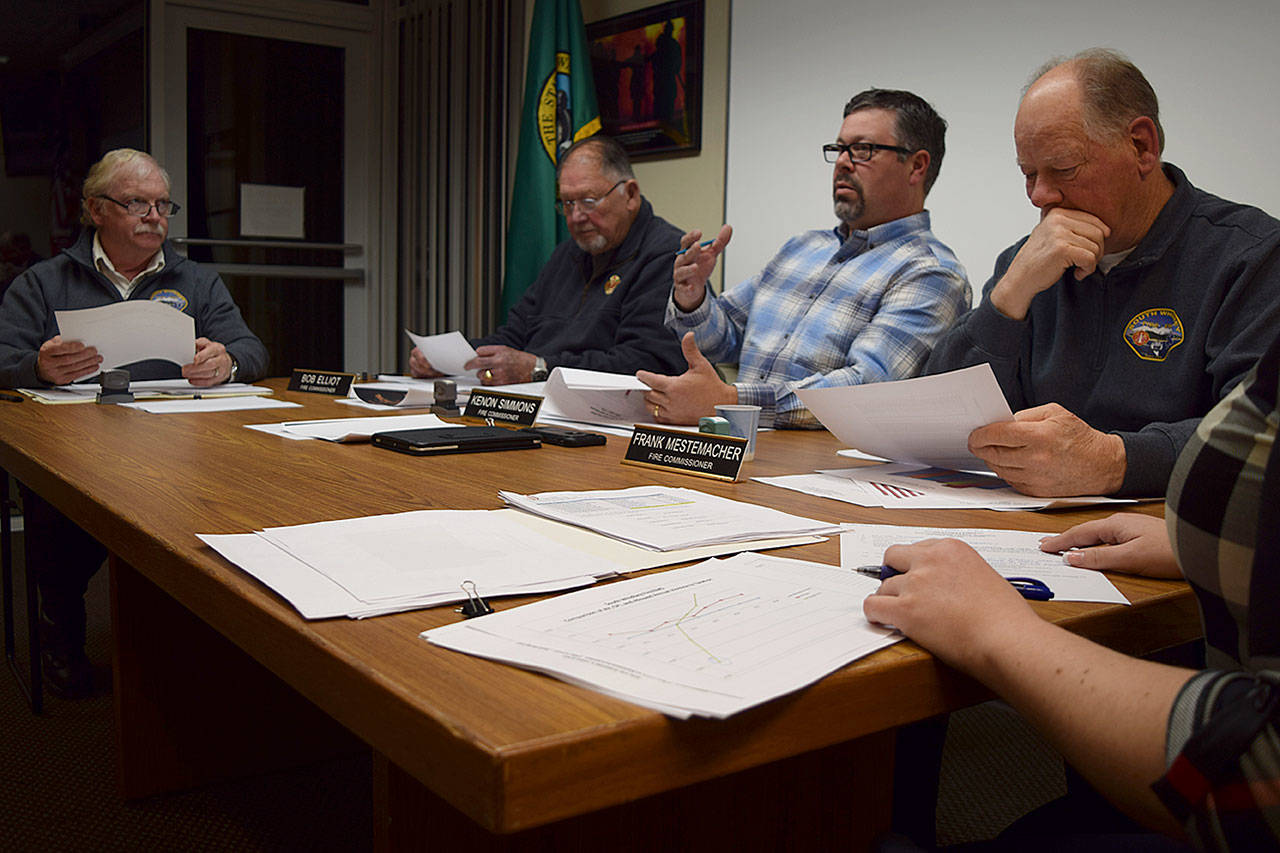Most of South Whidbey Fire/EMS’s capital will go toward the new Bayview Fire Station next year, the 2018 budget shows.
The district’s total expenditures, which include infrastructure and equipment, total $9.8 million. The majority of the district’s budget is going toward infrastructure, chiefly the new fire station in Bayview.
The budget was approved at the monthly commissioner’s meeting this past Thursday.
“We have the funding in place for the Bayview station after acquiring the ($4.8 million) bond and through savings in our capital accounts,” Palmer said.
South Whidbey Fire/EMS’s 2018 budget sets aside $2.8 million for operational expenses, which reflects the cost of providing services.
That’s an increase of 6 percent from the 2017 budget. The budget has fluctuated up and down at an average of 4.5 percent for the past five years.
The majority of the operational budget goes toward paying district staff. The chief’s wages total roughly $117,000, and $294,000 is set aside for the three deputy chiefs.
The district’s part-time firefighters will get paid about $182,000, while administration wages total nearly $165,000 and maintenance employee wages are $80,000.
Although the operational budget eclipses the 2017 budget, Chief Rusty Palmer praised the district for trimming the rest of the fat.
“We have a good track record of beating each other up in the budget hearings to keep costs down,” Palmer said. “You can see that in this budget.”
Fat was extensively trimmed off the capital budget, as priority was given to the new fire station, which will host the district’s administrative offices once completed. During budget meetings, the district initially tried to find room to purchase new apparatus, such as two new fire engine. However, the district cut “all of our apparatus purchases except for one water tender,” according Palmer.
A water tender is the equipment that transports water.
“We have had to defer a number of purchases due to funding,” Palmer said. “Most of our capital will go into the Bayview station next year.”
Crafting a budget has proved a challenge for South Whidbey Fire/EMS in recent years as the call volume continues to climb, requiring paid district staff rather than a solely volunteer force. To deal with that challenge, Palmer says the district moved from a “wants-based” budget to a “needs-based” budget. According to Commissioner Bob Elliot, it shows in the 2018 budget.
“The district staff worked hard on this,” Elliot said. “I don’t see how they could cut any more off the budget.”



